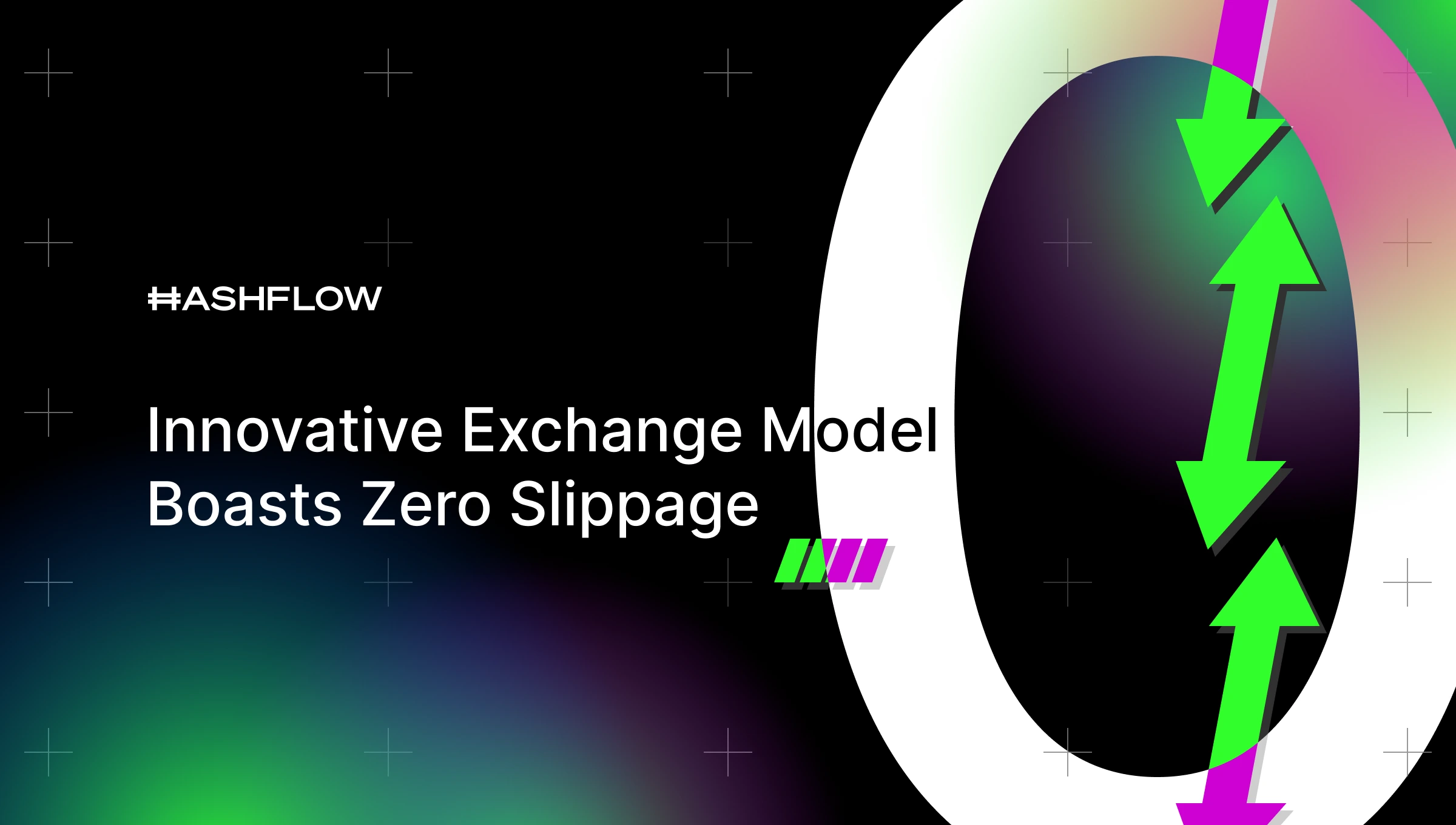Decentralised exchanges (DEXs) have rapidly risen in popularity in recent years, emerging as a serious alternative to centralised exchanges (CEXs).
With their capacity to offer users greater privacy, security, and control over their assets, they hold true to the founding principles of cryptocurrency and decentralised finance. However, some significant problems remain, limiting their effectiveness and adoption.
The downsides of DEXs
The main issues with DEXs are their inefficiencies, excess complexity, and poor price execution. Amongst the top DEXs, however, one has leveraged a different model for market-making that solves such core issues.
Hashflow is a decentralised exchange that offers traders guaranteed quotes while eliminating slippage – the biggest problem of all – commonly found on other DEXs. Hashflow is able to offer guaranteed pricing due to its request-for-quote (RFQ) market making model, whereas most DEXs rely on automatic market makers (AMMs) for liquidity.
Hashflow offers a simplified trading experience by using a unique blend of on-chain and off-chain components. Professional market makers compute prices off-chain and serve quotes when a user selects the token and quantity they want to trade. Once a user selects their cryptocurrency, they can purchase it at the quoted price, the trading process and shifting the assets to the user’s wallet. Hashflow allows for trading on any of six blockchains that it is currently deployed on, and also allows users to trade seamlessly across chains without the need for bridges or synthetic assets.
The request-for-quote (RFQ) model
Hashflow’s unique RFQ model provides users with zero price slippage. With AMM-based DEXs, slippage occurs when the liquidity in a particular pool is low and/or when a trade moves the market price of an asset, no longer allowing it to be bought or sold for the previously quoted price. Price discrepancies across AMM-based DEXs are also being exploited via MEV (Miner Extractable Value) activities such as sandwich attacks and front-running, a vulnerability of the AMM model which results in traders paying higher prices. Hashflow eliminates this risk as well.
Solving these problems makes Hashflow an attractive option for both retail and institutional traders. Its RFQ model enables institutional market makers to price assets off-chain while still executing and settling transactions on-chain. With RFQ, market makers can also price assets with the aid of more sophisticated pricing strategies that factor in off-chain data, such as historic asset prices, volatility, and other real-world information.
Hashflow market makers are always available to enable the buying and selling of cryptocurrencies, offering a more seamless and lower-priced experience for traders. Hashflow’s approach simplifies the overall trading experience for users and removes the need for automated market makers and asset bridging, making it simpler and easier for retail users to trade across one or more chains. The platform has already demonstrated its early success to the tune of over $12 billion transacted since its inception in August 2021.
In summary
Hashflow is a uniquely promising exchange with an innovative approach to decentralised trading. Its use of the RFQ model of direct market-making sets it apart from other DEXs and provides traders with a range of advantages, including better prices (thanks to tighter off-chain pricing), zero slippage, MEV-resistance, seamless and risk-free cross-chain trading, and access to a wider range of tradeable assets.
With its focus on liquidity, advanced trading tools, and user-friendly interface, Hashflow is well-positioned to solidify its position as a leading player in the rapidly-evolving DEX landscape.
| Disclaimer: This is a guest post. Coinpedia does not endorse or is responsible for any content, accuracy, quality, advertising, products, or other materials on this page. The image used in this article is for sponsored purposes only. Contact us if you have any issues or concerns. Readers should do their own research before taking any actions related to the company. |
